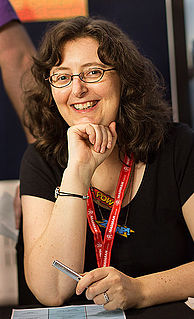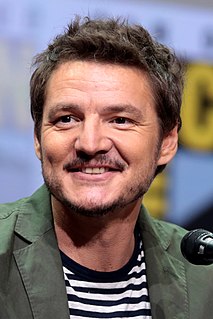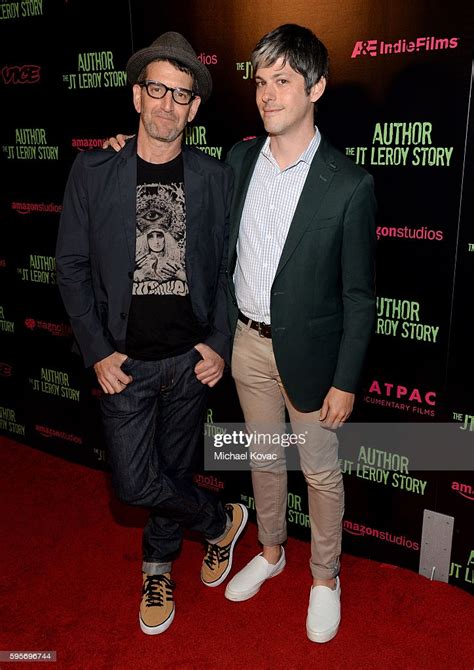A Quote by Trudi Canavan
Inspiration comes from so many sources. Music, other fiction, the non-fiction I read, TV shows, films, news reports, people I know, stories I hear, misheard words or lyrics, dreams... Motivation? The memory of the rush I get from a really good writing session - even on a bad day, I know I'll find that again if I keep going.
Related Quotes
Writing fiction is not a profession that leaves one well-disposed toward reading fiction. One starts out loving books and stories, and then one becomes jaded and increasingly hard to please. I read less and less fiction these days, finding the buzz and the joy I used to get from fiction in ever stranger works of non-fiction, or poetry.
Memory is like fiction; or else it's fiction that's like memory. This really came home to me once I started writing fiction, that memory seemd a kind of fiction, or vice versa. Either way, no matter how hard you try to put everything neatly into shape, the context wanders this way and that, until finally the context isn't even there anymore... Warm with life, hopeless unstable.
I think that I had read so much fiction that the craft itself sort of sank into me. I didn't read any 'how to' books or attend any popular-fiction-writing classes or have a critique group. For many years into my writing, I didn't even know another author. For me, a lot of reading was the best teacher.
I have so many favourite science fiction films. I would say 'Alien' and 'Aliens' are two of my favourite sci-fi films. Also 'Children of Men' would be one of my favourite science fiction films. I love the original 'Solaris' and the remake. And even though it wasn't a film, the series 'Battlestar Galactica' was one of my favourite TV shows.
That is as true for fiction or non-fiction. The writer has to really know their subject. It is really important to remember that the readers are a lot smarter than the writer. Also, good writing has to do with rewriting. You will never get it right the first time. So you rewrite and rewrite again until you get it right. Until you, and the reader, will be able to visualize what you're writing about.
I'm so deeply interested in what it feels like to be other people that I get to operate under the illusion when I'm writing fiction that I'm not really revealing that much about myself. But, of course, I am, and I know that I am. And yet there's this sort of membrane that I get to work behind as I write my fiction, and I love it.
It would be worth the while to select our reading, for books are the society we keep; to read only the serenely true; never statistics, nor fiction, nor news, nor reports, nor periodicals, but only great poems, and when they failed, read them again, or perchance write more. Instead of other sacrifice, we might offer up our perfect (teleia) thoughts to the gods daily, in hymns or psalms. For we should be at the helm at least once a day.
Can you hear the dreams crackling like a campfire? Can you hear the dreams sweeping through the pine trees and tipis? Can you hear the dreams laughing in the sawdust? Can you hear the dreams shaking just a little bit as the day grows long? Can you hear the dreams putting on a good jacket that smells of fry bread and sweet smoke? Can you hear the dreams stay up late and talk so many stories?




































